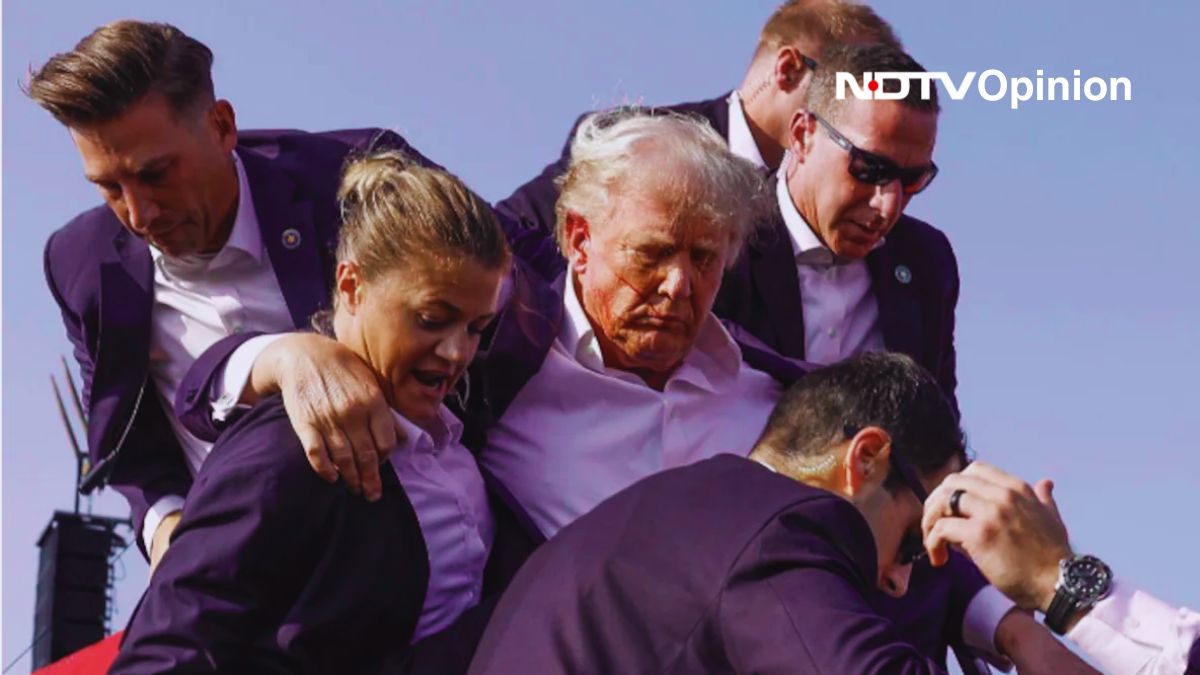Even before the assassination attempt on former President Donald Trump, American politics was in turmoil. But after last week’s dramatic developments, the situation is turning in a way that few could have foreseen. Even as President Joe Biden grows weaker by the day, Trump appears to be gaining unstoppable momentum. According to internal Democratic polling, Biden is losing ground to Trump in fourteen key states, including the five that Biden won in 2020: Arizona, Georgia, Michigan, Pennsylvania and Wisconsin. His numbers are shaky in Colorado, Minnesota, Maine, New Mexico, Virginia and New Hampshire after his disastrous debate performance.
The Democratic Party remains deeply divided and there are growing fears among its supporters that, in light of the debate, Biden is not in a position to defeat Trump and that he will also leave other Democrats vulnerable in the November vote. There are growing voices within the party asking Biden to step aside, with senior party officials like Rep. Adam Schiff of California openly saying that “a second Trump presidency will undermine the foundations of our democracy, and I seriously concerns about whether the president can beat Donald Trump in November.” Biden is fighting back, but is struggling to convince his own party of his suitability for the top job.
The GOP Convention
His opponent, meanwhile, is basking in the glory of a convention where his past critics now gather to formally anoint him as the party’s candidate. Everyone like Nikki Haley, Ron DeSantis and Marco Rubio, who until a few months ago targeted Trump during the Republican primaries, have now unequivocally supported him. Trump with a bandage over his ears and his supporters shouting, “Fight, fight, fight!” at the Republican National Convention is a powerful image for a nation that just days ago was debating the suitability of a candidate who incited the Jan. 6 insurrection on Capitol Hill.
The confusion within the Republican Party became clear when JD Vance, a former Never Trumper who had wondered in 2016 whether Trump might be “America’s Hitler,” was confirmed as the Republican Party’s vice presidential candidate. Due to his wife’s Indian origins, he faced racist attacks from far-right commentators. Proponents of the Make America Great Again movement are finding it difficult to reconcile Vance’s multicultural family with their core anti-immigration agenda.
Fundamental challenges
Political polarization in the US has created a number of fundamental challenges facing both Republicans and Democrats. The demonization of the other side has led to a situation where even after an assassination attempt, the vitriol continues to flow and no attempt at reconciliation takes place.
Although the theme of this week’s Republican convention is about unity, there is no room in the current Republican base for those who have a different vision of the US than Trump’s. Any challenge to Trump is about challenging the party, as the former president has made the Republican Party today more reflective of his views than a broad tent organization.
After Trump’s assassination attempt, Vance wrote: “Today is not just an isolated incident. The central premise of the Biden campaign is that President Donald Trump is an authoritarian fascist who must be stopped at all costs. That rhetoric led directly to President Trump’s statements. attempted murder.” Trump’s own role in disrupting the political climate in the US has been conveniently forgotten by his supporters.
Although President Biden last week called on Americans to rein in political debate, arguing that ‘[It] must never be a battlefield and, God forbid, a killing field,” and warning that “no matter how strong our convictions, we must never fall into violence,” it is not immediately clear who is listening. Central America’s resentment and persecution have thwarted any attempt by the Biden administration and Democrats in general to craft a political narrative that could turn the momentum in their favor. And now, after the attack on Trump, it has become even more difficult. The image of a defiant former president with streaks of blood running down his face is in stark contrast to a clumsy, weak Biden unable to articulate a coherent thought.
November is still far away. Even a day is a long time in politics. The Democratic Party can still regroup and pose a serious challenge to Trump. But there is no denying that the past two weeks have fundamentally disrupted the US presidential election and will leave a strong mark on US politics, whichever way the political wind blows in the coming days.
(Harsh V Pant is Vice President for Studies and Foreign Policy at ORF.)
Disclaimer: These are the personal opinions of the author














